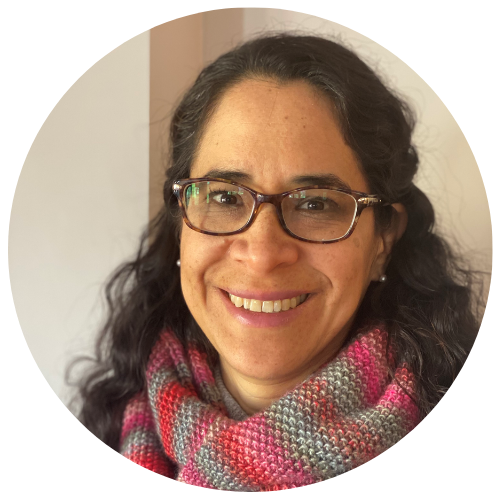Share
Small Comments with a Big Impact
Back to MessengerBy Dr. Alejandra Ugarte Torres, MD, MPH, FRCPC
Read time: 4 minutes
My day was going well. I had seen two patients at the clinic and the sense of accomplishment was big. My third patient encounter started a bit differently. I entered the room with the medical student who was working with me. I saw a man with swollen legs accompanied by a family member. I introduced myself as I usually do. “Good morning! I am Dr. (my last name), I will be your doctor today. This is our medical student, (name).”
The family member immediately turned to me and asked, “Dr. What? What kind of name is that?” I felt uneasy, and I thought, not again… I repeated my last name slowly. Then, after a pause, I turned my attention to the patient. As I was asking questions to understand more about the presenting illness, the family member looked attentive to me. Then the next question came, as I was anticipating it would happen: “Where did you do your medical training?” I felt extremely uncomfortable and entirely undermined in my clinic and front of my medical student.
I took a pause and answered. “I did all my medical training in (my home country) and retrained here in Canada.”
I was feeling upset, but I continued asking more questions to my patient to understand the social context and provide personalized care. I did not even finish the second question when the family member interrupted again and said, “You are very lucky to be able to practise medicine in Canada.”
The overwhelming feeling of pain, anger, frustration and helplessness started growing inside me. I knew I could not answer at that time, so I excused myself and went outside the room. I could not stop thinking about why people believe that having an accent means I am not qualified to practise medicine in Canada. I wondered if they would ask the same question to a white doctor. Do they understand that their curiosity to know more about my “exotic background” really means they are questioning my medical credentials and capability? Do they understand that their comments have the intention to remind me that I am different, that I do not belong to the Canadian standards, that I am not good enough? I am not lucky. I worked hard to be where I am today. I spent countless days and nights away from my family to retrain in Canada. I am smart, compassionate and a skilled physician. And yet, all they see is a young female doctor of colour with a heavy accent. Microaggressions like this happen every day in my clinical practice.
Microaggressions at the workplace are subtle, pervasive comments or actions against oppressed or minority people based on the colour of the skin, gender, gender identity, ethnicity, ability and religion, among other characteristics1. The effect of microaggressions is cumulative and can affect mental and physical health, self-esteem, performance, achievement and advancement in the professional career. How can we answer microaggressions? How can we implement a real change that promotes inclusion and does not allow discrimination in our health care system?
Addressing microaggressions in the workplace environment can be challenging when there is no support, no desire for culture change, and no policy in place to protect the victim. It can also be difficult for the recipient to respond to microaggressions when there is a risk of retaliation. Based on a humanistic approach, Ackerman et al2, developed a triangle model to navigate microaggressions in the health profession. This approach focuses on 3 angles:
- The recipient
- Use the ACTION approach3 to frame your response: Ask clarifying questions (“You seem surprised I am a physician. Are you surprised?”); Come from curiosity, not judgement (“I want to better understand your surprise.”); Tell what you observed with facts (“I noticed you didn’t ask my resident where he did his medical school.”); Impact exploration (“Your questions make me feel like you are doubting my credentials.”); Own your thoughts and feelings about the subject (“It is difficult to be the only Latina doctor in the clinic, and I don’t have the same validation as my white colleagues.”); Next steps (“I’d be happy to continue this discussion at a later time.”).
- The bystander and institution
- As a bystander, speak up. Do what you can to provide safe spaces, celebrate and promote diversity, advocate behind closed doors, educate and engage toward a common goal, and empathize and avoid judgement. Institutions can prioritize funding for diversity, equity and inclusion, develop explicit policies against racism and discrimination, revise and correct policies and procedures that perpetuate racism and discrimination, encourage programs that promote diversity in hiring, mentorship and networking, and provide and mandate microaggression education and anti-racism training.
- The source
- Recognize the effect of your actions, regardless of intention. Learn about your power and privilege, educate yourself, listen and seek feedback, be accountable, apologize, and commit to being better.
References
1 Sue DW, Capodilupo C, Torina Gina, et al. Racial Microaggressions in everyday life. American Psychologist 2007; 62(4): 271-286. doi: 10.1037/0003-066X.62.4.271
2 Ackerman-Barger K, Jacobs NN. The microaggressions Triangle model: A humanistic approach to navigate microaggressions in Health Professions schools. Academic Medicine 2020; 95:S28-S32. doi: 10.1097/ACM.0000000000003692
3 Cheung F, Ganote CM, Souza TJ. Microaggressions and micro resistance: Supporting and empowering students. In: Faculty Focus Special Report: Diversity and Inclusion in the College Classroom. Madison, WI: Magna Publications; 2016
 |
Dr. Alejandra Ugarte Torres, MD, MPH, FRCPC (she/her/ella) is a clinical lecturer at the University of Calgary and a fellow of the Royal College of Physicians and Surgeons of Canada. She completed Internal Medicine and Infectious Diseases training at Instituto Nacional de Ciencias Medicas y Nutricion “Salvador Zubiran”, UNAM (1999-2005) and at the University of Calgary (2012-2017). She has a Master’s in Public Health from Johns Hopkins Bloomberg School of Public Health. Her areas of interest include sexually transmitted infections, social justice and equity. |























Comments for this post are now closed. If you would like to share your feedback on this topic, please email support@cpsa.ca.